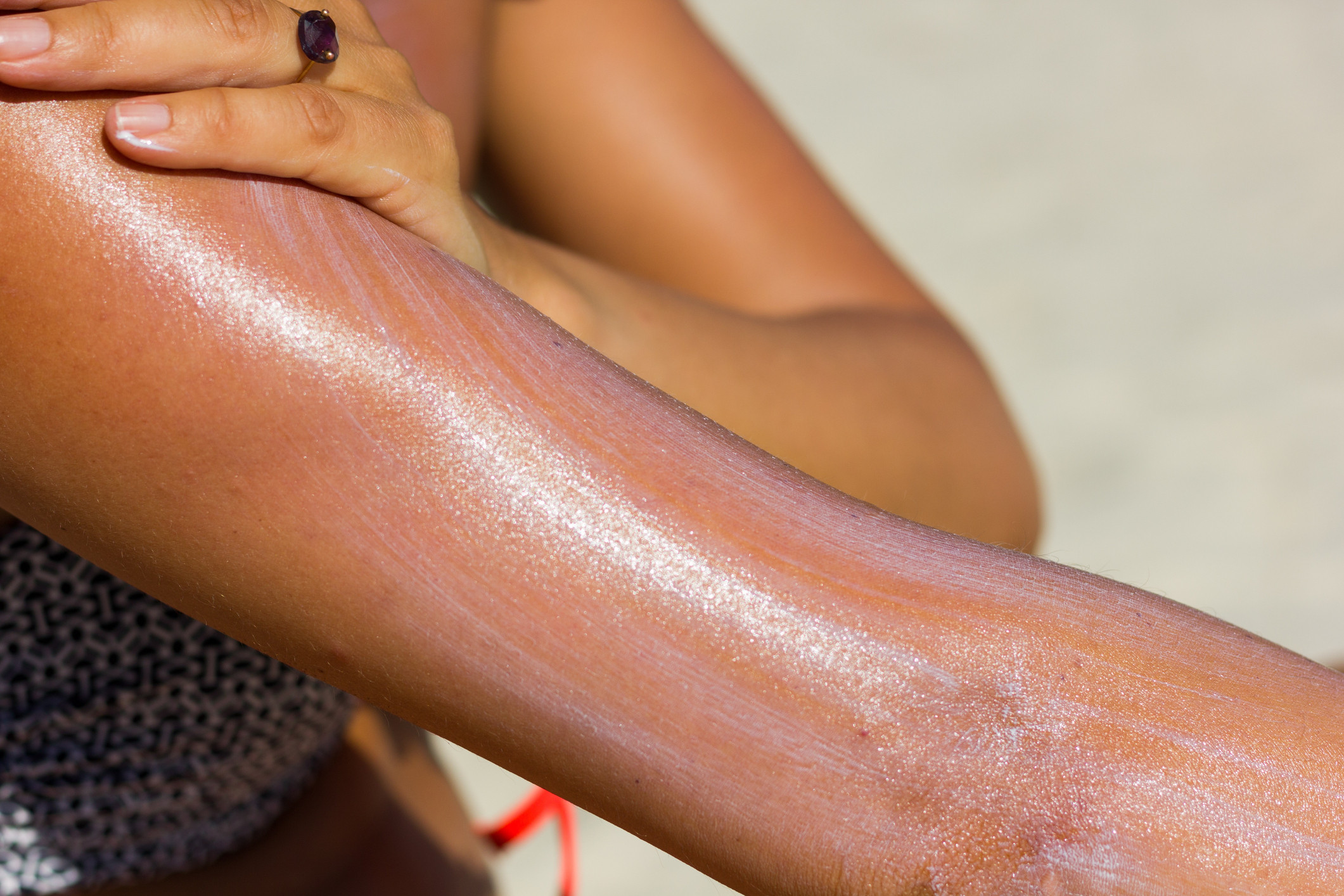
5 timeless habits for better health

What are the symptoms of prostate cancer?

Is your breakfast cereal healthy?

When pain signals an emergency: Symptoms you should never ignore

Does exercise give you energy?

Acupuncture for pain relief: How it works and what to expect

How to avoid jet lag: Tips for staying alert when you travel

Biofeedback therapy: How it works and how it can help relieve pain

Best vitamins and minerals for energy

Should you take probiotics with antibiotics?
Staying Healthy Archive
Articles
Exercise still the best approach to prevent falls
News briefs
Image: © Steve Debenport/Getty Images
Regular exercise in older adults offers powerful protection against falls. That's the conclusion of the U.S. Preventive Services Task Force (USPSTF), published online April 17, 2018, by the Journal of the American Medical Association. Task force members reviewed the latest evidence (about 20 studies) and said there was enough to confirm that exercising, muscle strengthening, and improving balance could help prevent falls in high-risk older adults. Most people in the studies exercised three times a week. The benefit remained the same whether people performed individual routines, participated in exercise classes, or underwent physical therapy. The USPSTF also recommended that doctors offer additional measures to prevent falls, depending on a person's risks (like getting an eye exam if you have poor vision). And the task force found that taking vitamin D did not prevent falls in older adults, so it is recommending against taking a supplement just for that purpose. (Vitamin D is important if you have osteoporosis or vitamin D deficiency.) The takeaway: Falls are the leading cause of injury and injury-related death in older adults. If you're not active, try walking a little each day (if your doctor says it's okay), and build toward walking at least 20 minutes per day.
3 simple ways to get more restful sleep
Even people without insomnia can have trouble getting a good night's rest. Many things can interfere with restorative sleep — crazy work schedules, anxiety, trouble putting down the smartphone, even what you eat and drink.
The following three simple steps can help you sleep better.
3 posture tips to get the most out of a core workout
Good posture is important, even during exercise. Quick posture checks before and during a core exercise routine can help you avoid injury and squeeze the biggest benefit from your workout. Here is what you need to know:
- Stand up straight. When instructions for an exercise ask you to stand up straight, that means keeping your:
- chin parallel to the floor
- shoulders even (roll them up, back, and down to help achieve this)
- arms at your sides, elbows relaxed and even
- abdominal muscles pulled in
- hips even
- knees even and pointing straight ahead
- feet pointing straight ahead
- body weight evenly distributed on both feet.
- Stay in neutral. Neutral alignment means keeping your body in a straight line from head to toe except for the slight natural curves of the spine. Whether you're standing or seated, that means your spine is not flexed or arched to overemphasize the curve of the lower back. One way to find neutral is to tip your pelvis forward as far as is comfortable, then tip it backward as far as is comfortable. Neutral is roughly in the middle. If you're not used to standing or sitting up straight, it may take a while for this to feel natural. A neutral wrist is firm and straight, not bent upward or downward.
- Get the angle. When angles appear in exercise instructions, visualize a 90-degree angle as an L. To visualize a 30-degree angle, mentally slice the 90-degree angle into thirds, or picture the distance between a clock's minute hand and hour hand at one o'clock.
Achieving and maintaining good posture during your workouts takes a little practice. If possible, look in a mirror when exercising. Try to take a few moments each day to practice better posture, too.
What is a leaky gut?
The Art of Aging Well - Longwood Seminar
Is age just a number? How will medical and technology advances redefine biological aging? In this seminar, learn more about research led by scientists at Harvard Medical School about what healthy aging means, and explore discoveries that could help to improve the experience of aging.
Each spring, Harvard Medical School's Office of Communications and External Relations organizes a series of four free "mini-med school" classes for the general public in the heart of Boston's Longwood Medical Area. At the end of the seminar series, participants who attend three out of the four sessions receive a certificate of completion. Topics are selected for their appeal to a lay audience and have included the human genome, nutrition, sleep dynamics and health care access. Faculty from Harvard Medical School and its affiliate hospitals volunteer their time to present these lectures to the community.
Bridging East and West: New Frontiers in Medicine - Longwood Seminar
Mind-body medicine is providing new models for wellness and therapy by combining conventional and complementary approaches to treatment. At this seminar, a panel of Harvard Medical School faculty will discuss this quickly developing approach that may help shape the future of medicine.
Each spring, Harvard Medical School's Office of Communications and External Relations organizes a series of four free "mini-med school" classes for the general public in the heart of Boston's Longwood Medical Area. At the end of the seminar series, participants who attend three out of the four sessions receive a certificate of completion. Topics are selected for their appeal to a lay audience and have included the human genome, nutrition, sleep dynamics and health care access. Faculty from Harvard Medical School and its affiliate hospitals volunteer their time to present these lectures to the community.
Weighing the Facts of Obesity - Longwood Seminar
Obesity among children and adults dramatically increases the risk of chronic illnesses such as heart disease and type 2 diabetes. What are the contributing factors that lead to being overweight? In this seminar, Harvard Medical School doctors and researchers will address the stigma that surrounds obesity and discuss concrete methods, including changes to sleep and diet, that could help scale back this growing problem.
Each spring, Harvard Medical School's Office of Communications and External Relations organizes a series of four free "mini-med school" classes for the general public in the heart of Boston's Longwood Medical Area. At the end of the seminar series, participants who attend three out of the four sessions receive a certificate of completion. Topics are selected for their appeal to a lay audience and have included the human genome, nutrition, sleep dynamics and health care access. Faculty from Harvard Medical School and its affiliate hospitals volunteer their time to present these lectures to the community.
Clean out your pantry, clean up your health
Say goodbye to foods high in refined carbohydrates, sodium, and added sugars.
Image: © fcafotodigital/Getty Images
They say the journey of a thousand miles starts with a single step. And if you're looking to eat a healthier diet, the first few steps should include a stroll over to the pantry.
Inside, you may find staples of the standard American diet: foods in boxes, bags, cans, and jars, brimming with refined grains, salt, added sugars, or saturated fat.
Working later in life can pay off in more than just income
Benefits such as mental stimulation and social engagement are associated with staving off chronic disease.
Image: © Rawpixel/Getty Images
Punching a time clock is still part of the regular routine for an increasing number of older adults. They're staying employed or going back to work, even though they're beyond the traditional retirement age of 65.
"For well over 100 years, men had been retiring at earlier and earlier ages. Something shifted in the 1990s, and they began working longer. The story for women is different. They weren't always in the labor force. But now we see employment rates rising for women at every age," says Nicole Maestas, an associate professor of health care policy at Harvard Medical School. She studies the economics of aging, health, and disability.

5 timeless habits for better health

What are the symptoms of prostate cancer?

Is your breakfast cereal healthy?

When pain signals an emergency: Symptoms you should never ignore

Does exercise give you energy?

Acupuncture for pain relief: How it works and what to expect

How to avoid jet lag: Tips for staying alert when you travel

Biofeedback therapy: How it works and how it can help relieve pain

Best vitamins and minerals for energy

Should you take probiotics with antibiotics?
Free Healthbeat Signup
Get the latest in health news delivered to your inbox!
Sign Up








